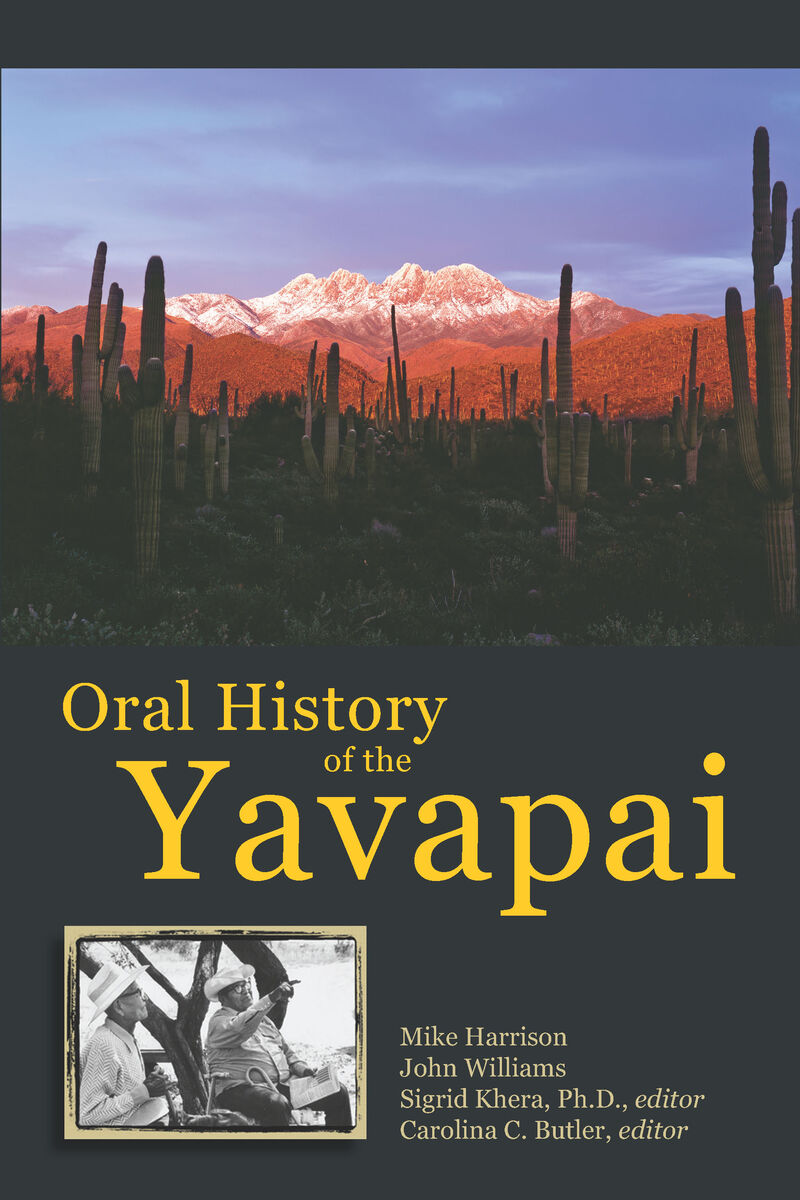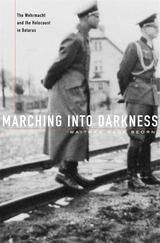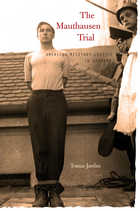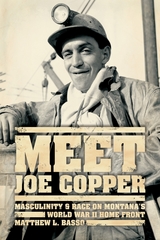Oral History of the Yavapai
University of Arizona Press, 2015
Cloth: 978-0-8165-3253-7 | Paper: 978-0-8165-3254-4 | eISBN: 978-0-8165-4919-1
See other books on: Native American Studies | Oral History | Social Science | Williams, John
See other titles from University of Arizona Press
Cloth: 978-0-8165-3253-7 | Paper: 978-0-8165-3254-4 | eISBN: 978-0-8165-4919-1
ABOUT THIS BOOK | AUTHOR BIOGRAPHY | TOC
ABOUT THIS BOOK
In the 1970s, the Fort McDowell Reservation in Arizona came under threat by a dam construction project that, if approved, would potentially flood most of its 24,680 acres of land. As part of the effort to preserve the reservation, Mike Harrison and John Williams, two elders of the Yavapai tribe, sought to have their history recorded as they themselves knew it, as it had been passed down to them from generation to generation, so that the history of their people would not be lost to future generations. In March 1974, Arizona State University anthropologist Sigrid Khera first sat down with Harrison and Williams to begin recording and transcribing their oral history, a project that would continue through the summer of 1976 and beyond.
Although Harrison and Williams have since passed away, their voices shine through the pages of this book and the history of their people remains to be passed along and shared. Thanks to the efforts of Scottsdale, Arizona, resident and Orme Dam activist Carolina Butler, this important document is being made available to the public for the first time.
Oral History of the Yavapai offers a wide range of information regarding the Yavapai people, from creation beliefs to interpretations of historical events and people. Harrison and Williams not only relate their perspectives on the relationship between the “White people” and the Native American peoples of the Southwest, but they also share stories about prayers, songs, dreams, sacred places, and belief systems of the Yavapai.
Although Harrison and Williams have since passed away, their voices shine through the pages of this book and the history of their people remains to be passed along and shared. Thanks to the efforts of Scottsdale, Arizona, resident and Orme Dam activist Carolina Butler, this important document is being made available to the public for the first time.
Oral History of the Yavapai offers a wide range of information regarding the Yavapai people, from creation beliefs to interpretations of historical events and people. Harrison and Williams not only relate their perspectives on the relationship between the “White people” and the Native American peoples of the Southwest, but they also share stories about prayers, songs, dreams, sacred places, and belief systems of the Yavapai.
See other books on: Native American Studies | Oral History | Social Science | Williams, John
See other titles from University of Arizona Press












